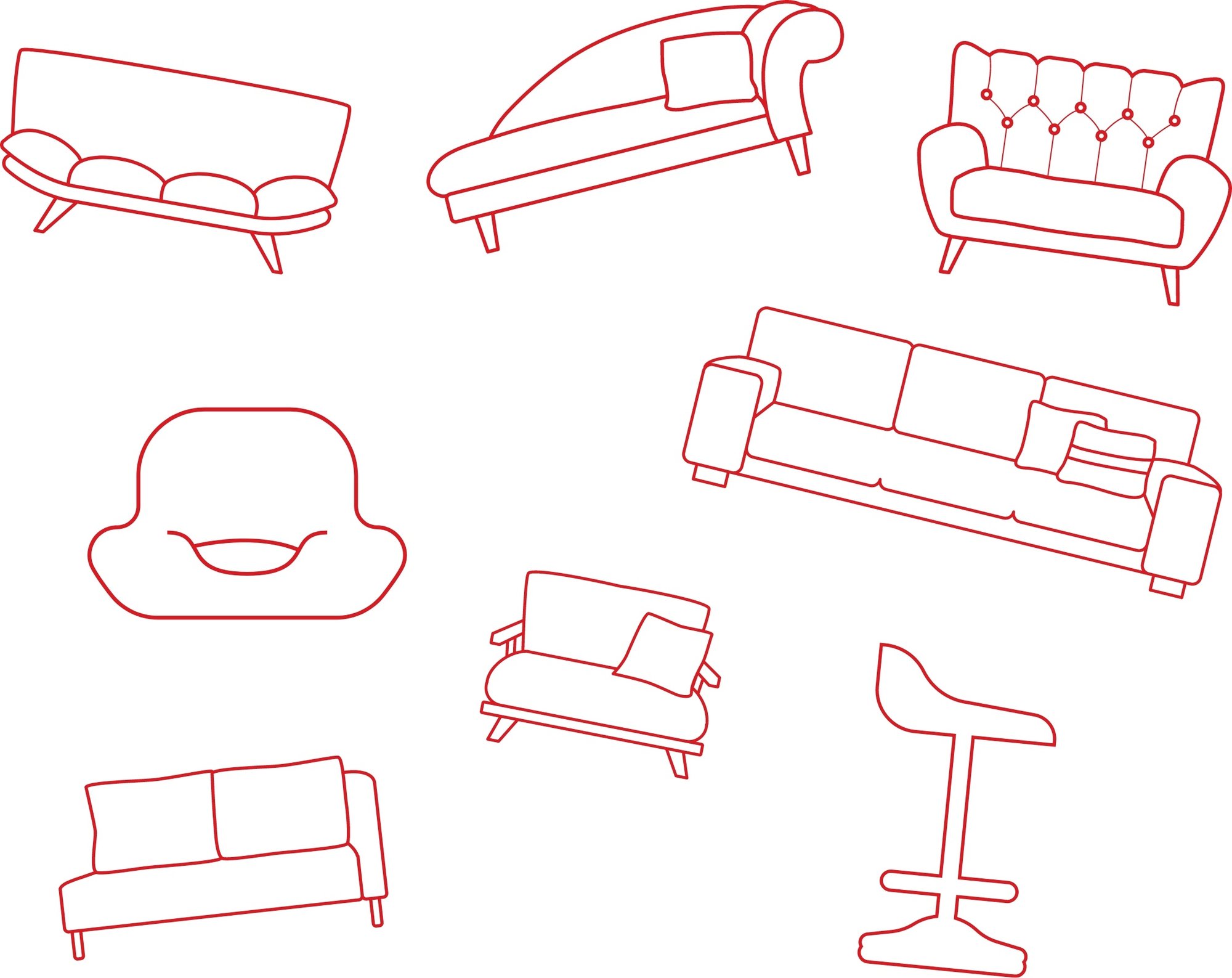Moving offices or need to get rid of old unwanted furnishings?
Disposing of soft furnishings is no longer straight forward, as regulations require businesses to correctly handle of these type of materials.
Since 1 January 2023, any furniture containing Persistent Organic Pollutants (POPs) can no longer be safely disposed of in general waste or landfill sites and must be treated differently to general waste. This means these items cannot be recycled, reused or repurposed. Instead, these soft furnishings must be safely disposed of through incineration.
Businesses generating commercial waste (waste producers) need to correctly identify, categorise, and prevent any soft furnishings containing POPs from ending up in landfill sites.

What are POPs?
POPs, or Persistent Organic Pollutants, are toxic chemicals that are highly resistant to natural degradation processes, making them persistent in the environment.
In 2007 the UK Government banned the manufacture and sale of POPs. However, furniture containing POPs are still in use today and these items need careful disposal in order to avoid contaminating the environment.
The source of these pollutants is often associated with upholstered furniture containing soft furnishings or fabrics. These materials have been manufactured to regulations requiring them to be fire retardant, lengthening the time it takes for these materials to burn. Chemicals are used to make these materials fire resistant, and it is these chemicals which often contain persistent organic pollutants.
As a result, soft furnishings and fabrics often require safe disposal.
How Should Businesses Dispose of Furnishings?
Assume any item of upholstered
furniture may contain POPs, unless you, the owner of the waste, can demonstrate and
evidence otherwise.
Segregate any upholstered items from all other types of waste – do not contaminate other waste types with this material.
Where possible remove affected
POP materials from non-affected materials.
Notify your waste management
company of the material to be collected.
Materials that do not contain POPs
Non soft furnishings
- Wooden chairs without cushions
- Mattresses
- Deckchairs
- Curtains
- Blinds
- Beds (Bedframes)
Materials that may contain POPs
Soft furnishings / Seating Waste such as:
- Chair Cushions
- Sofas
- Sofa Beds
- Armchairs
- Upholstered kitchen Dining Room chairs
- Stools or footstools
- Office chairs
- Futons
- Bean Bags
- Floor and sofa cushions
Items containing:
- Leather
- Synthetic leather
- Other fabric
- Foam
Your requirements for POPs waste disposal
Safe disposal requires that affected items are not mixed with any other types of waste and kept separate.
A special collection of POP waste will be required and a licensed waste carrier, such as Hills Waste Solutions, will provide you with the appropriate documentation to show that the POPs waste will be disposed of in accordance with the regulations.
How Hills Waste disposes of POPs materials
Safe disposal requires that these materials are incinerated. Hills Waste Solutions will take POPs materials to an authorised facility for safe disposal, ensuring full compliance with regulations. We offer:
- Licensed collection and disposal services for soft furnishings with POPs
- Guidance on regulatory compliance
- Sustainable waste management solutions
Frequently asked questions
-
What are the 12 worst POPs?The "Dirty Dozen" refers to the first persistent organic pollutants (POPs) identified under international agreements, including DDT, PCBs, dioxins, and furans. These chemicals are highly toxic and can be found in certain types of soft furnishings and other materials. At Hills Waste Solutions, we help businesses safely dispose of items that may contain these harmful substances.
-
What are the POPs waste regulations?POPs waste regulations require businesses to properly identify, segregate and dispose of waste containing these dangerous chemicals. In the UK, items like certain soft furnishings and insulation materials often contain POPs. Hills Waste Solutions, a licensed carrier, ensures that your POPs waste is handled and disposed of safely, helping you stay compliant with the regulations.
-
Why are POPs items hazarous? How unhealthy are POPs?POPs are extremely harmful to human health, disrupting hormones, weakening the immune system, and increasing cancer risks. They can accumulate in your environment over time. Hills Waste Solutions can help dispose of materials you have which may contain POPs. Just give us a call.
-
How do POPs harm the environment?
POPs persist in the environment, contaminating soil, water, and air, and can harm wildlife by accumulating in the food chain. Hills Waste Solutions can help in the compliant disposal of POP-containing waste, preventing these chemicals from polluting ecosystems and supporting a healthier environment.
-
What items could contain POPs?Many types of soft furnishings could be affected by POPs. Our guide on this page provides a list of the most common items that could be affected.
-
What does POPs mean?POPs stands for Persistent Organic Pollutants
-
Can I just remove the foam from the affected item?No, as the item is contaminated you must leave any foam attached to the item concerned and ensure that the whole item is correctly disposed of, using a licenced waste carrier.
-
Why does it cost so much to dispose of POPs waste?POPs waste must be treated as hazardous waste so it requires more specialist disposal, which costs more. For non-comercial waste (household waste) you may be able to take your item(s) to your local municipal disposal site, but they will advise you.
-
Are you unsure whether your item contains POPs?
If you are unsure of whether an item contains POPs then please contact our Customer Support Team on 0808 1454533 who can provide you with further information.
